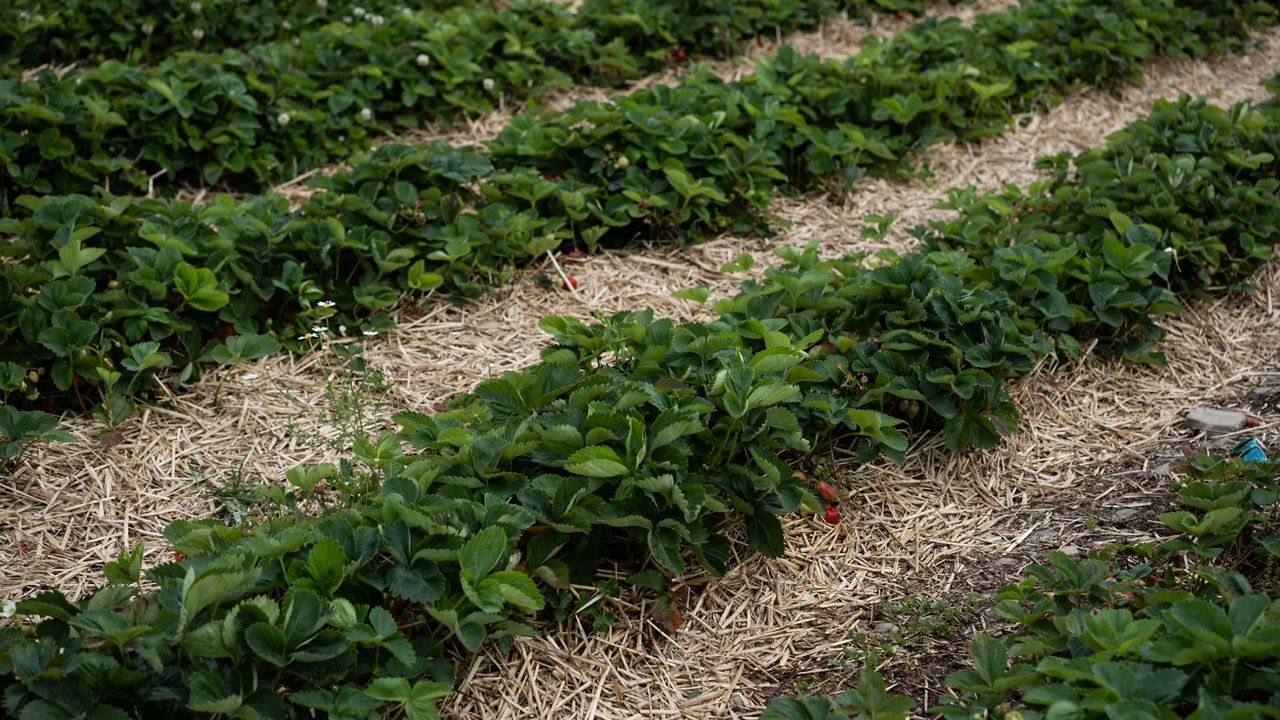The New York Farm Bureau highlighted reforms to the H-2A wage rates and continued its push for an updated Farm Bill to support specialty crop producers, dairy farmers, climate smart agriculture and mental health resources.
“We need Congress to pass an updated Farm Bill as much has changed since the passage of the 2018 bill. We had a pandemic, record high inflation, rising supply costs and global unrest. Updating the farm safety net to help farmers manage risk is necessary to keep America’s food supply strong,” said New York Farm Bureau president David Fisher in a press conference Thursday.
The 2018 Farm Bill cost $867 billion and the Congressional Budget Office estimated that the 2023, now 2024 Farm Bill, will cost $1.51 trillion – the first trillion-dollar Farm Bill in history.
With extreme weather events becoming more common, farmers have the option to buy insurance to prepare for the damage they could cause but some specialty crops are lacking proper coverage, Fisher said.
“A significant number of acres of cabbage, strawberries, nursery plants, maple and more are not covered by an insurance program and hopefully a new Farm Bill can address the unique needs of our specialty crop growers and expand the coverage,” he said.
There are more than 500 cabbage producers in New York and 475 strawberry growers, according to the U.S. Department of Agriculture's 2022 Census of Agriculture. The state ranks No. 2 in the country for both cabbage and maple syrup production.
The Farm Bill also funds conservation programs to help reach sustainability goals, which Fisher said have improved productivity for farmers.
“It would have taken 100 million more acres 40 years ago to produce the same amount of food, feed, fiber and fuel that we are today,” he said.
Ashley Oeser, national affairs coordinator for the New York Farm Bureau, said funding these programs is critical for reducing greenhouse gas emissions.
“It is important for our farmers to have a seat at the table when discussing policy changes around these important issues as well as recognition and support for practices they are already doing to reduce greenhouse gas emissions. Farms are part of the solution to addressing climate change,” Oeser said.
H-2A farmworkers are seasonal workers and are frequently used on New York farms during busy periods of the year, such as planting and harvest seasons. Their wages are federally regulated using the Adverse Effect Wage Rate formula.
“In many cases, farmers learn of the mandated wage increases literally weeks before workers arrive on their farms, making it hard to plan and budget,” Fisher said.
As of Jan. 1, the mandated wage for H-2A workers in New York is $17.80 per hour.
“We’re hoping for a pause in wage rate increases while Congress can work on a more reasonable approach that gives farmers the ability to plan better and compete more on the world market,” Fisher said.
Dairy farmers and advocates have been pushing for changes to how milk prices are formulated, and Fisher, a dairy farmer in Madrid, said the farm bureau will continue to support those changes.
“Prices ebb and flow in the dairy markets but have not really changed significantly in the last 10 years. To make it more equitable for farmers, we’d like to revert back to the pricing structure that was changed in the previous 2018 Farm Bill,” he said.
The change invoked market pricing structure that has cost farmers billions of dollars over the past five years, Fisher said.
“Ultimately, we want to make sure dairy farmers receive a fair price for their milk,” he said.
With the release of the 2022 Census of Agriculture last month, data identified that nearly 3,000 farms were lost in New York over the past five years.
“One reason is simply the cost of production remains high and commodity prices are often too low. There are major financial strains on farms today and this can weigh heavily on farmers’ mental health,” Oeser said.
Farming is among the industries with the highest rates of suicide, according to data from the CDC. In 2021, it was found that the suicide rate among men working in crop production was 46 per 100,000 and nine per 100,000 women.
New York Farm Net and the New York Center for Agricultural Medicine and Health provide mental health support for farmers, but Oeser said they need more resources.
“We are advocating for increased awareness of mental health resources and to have more services available for those who work in agriculture. This includes stress assistance programs and farmer facing training,” she said.


